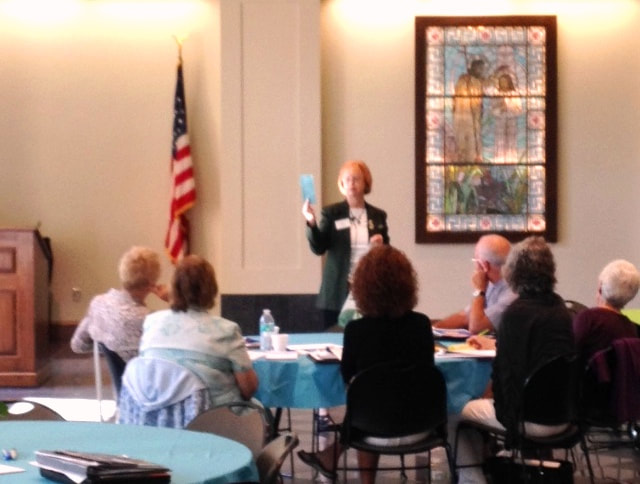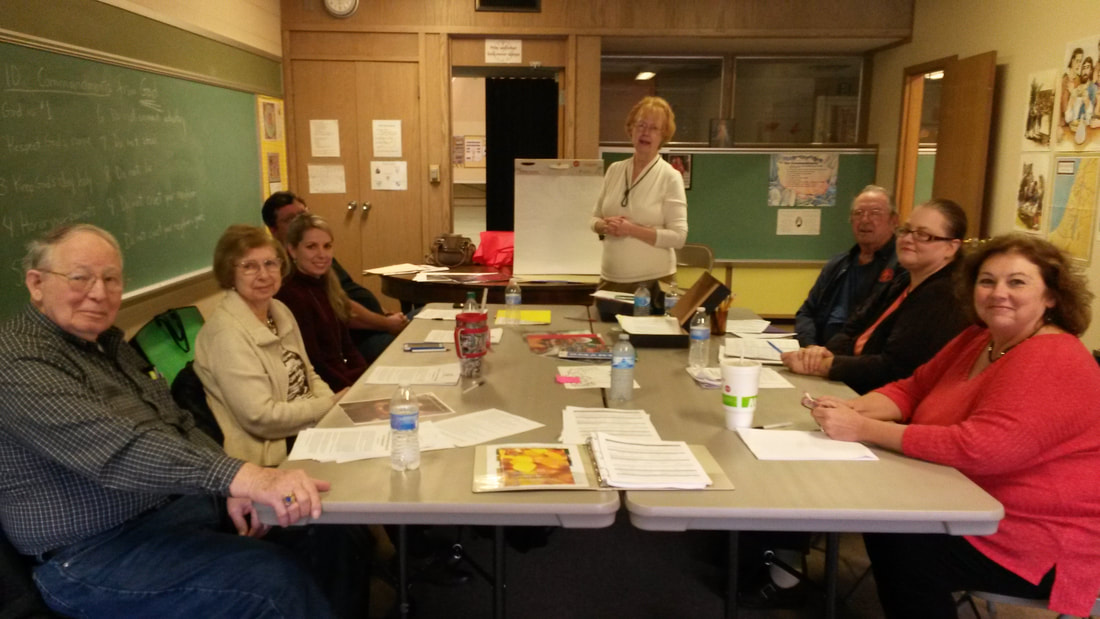|
“‘This will be catastrophic’: Maine families face elder boom, worker shortage in preview of nation’s future,” from The Washington Post, could be a description of a dystopian movie: it’s not. This is the state of State of Maine, which is the harbinger of things to come for the rest of these 50 United States. We need to listen to this alarm.
We’re facing a demographic dilemma: not enough young people to fill all jobs, even those outside of elder care. We need them now! Where do we get them? We can’t hire them because they were never born! Thus, current workers remain on the job long after it’s safe or appropriate. Results include accumulated injuries to workers who keep doing injurious jobs. Even the field of healthcare can’t find enough workers or volunteers. The State of Maine has learned that there is no one available to fill home care jobs. There is no one to fill care facility jobs either. Professional fields have the same problem; many of the number of nurses and doctors are now older and there are not enough of them it is and there’s no one to replace them. Medicaid pays far less than other employers, drawing the few workers away from elder care. However, simply raising wages won’t help if there are not enough people to hire! Maine is already experiencing the results, some facilities closed altogether. Others closed admissions for months due to too few staff. No vacancies in care facilities means families must place their loved ones wherever they can. A loved one far away means a l-o-n-g commute to visit. Younger, disabled people also get caught in this care-crunch. If no one is available, some adult children try to fill the gap. Those care gaps further pressure the few remaining working adult children. Keep this number in mind: *By 2030, 1 in 5 Americans will be over 60. *The number of seniors will DOUBLE between 2015 and 2050. *The senior population over 85 will TRIPLE in that same period. **We will need 7.8 MILLION new people to fill these jobs. Since we didn’t give birth to them; where do we get them? This isn’t as riveting as a news story as a fire, or a shooting, that’s the problem. The numbers of affected families are there, but they aren’t collected (aggregated). This problem is spread everywhere. We’re in a presidential campaign yet no candidate is talking about this national problem. Why? This demographic dilemma is happening one family at a time: Your family is next.
0 Comments
The Reuter's article, U.S wages lost to unpaid family care to hit $147 billion by 2050, describes lost wages and pressure on caregivers to switch to part time work or quit all together. These are definable numbers which the article describes well. One doesn’t hear enough about these issues and costs in the news media. I call upon anyone who knows a caregiver to insist on better public discussion on these caregiving issues/ costs/pressures.
I've always worried that caregivers also lost opportunity as well as wages. They are less likely to be offered new projects at work which can polish one's resume. They can’t take the lateral move which puts the employee in line to move up in a branch of the organization. A promotion comes with more demands on time and a different schedule. How can the working caregiver manage that? Promotions may mean a move out 0f town; how does a caregiver juggle that? So less chances to rise in a career. In addition, caregivers suffer hidden damages to their careers. Just taking repeated PTO (Paid Time Off) casts a shadow over one's career. Eventually, PTO runs out. When PTO runs out, the employee is left with FMLA (Family Medical Leave Act). That is usually unpaid. The employed caregiver must consider loss of income along with caregiving pressures. I'm also a member of Society for Human Resource Management (SHRM), and read their daily dispatches. It appears that employers are more comfortable allowing the employed caregiver a block of time, like a week or two, to handle a health crisis. Piecemeal time tracking is another matter. There are some tracking systems, however, these seem to be evolving methods. The employed caregiver may need to use her time in piecemeal form. Perhaps she takes her lunch time to supervise the elder taking medications. Her commuting time would be deducted from PTO or FMLA That's the typical shape of elder caregiving, a mosaic of times and tasks squeezed together throughout the day. So both the employed caregiver and her employer are both carrying this process. The caregiver is doing the tasks and the HR manager is handling the administration. This produces an implicit time cost to the employer. Why would the caregiver’s boss consider her for special projects, a move, or a promotion? These would demand more of her time and the employed caregiver doesn't appear to have any time. In order to develop one's career, one must appear to be ready and willing as well as able. No employer really knows whether any employee is truly available. However, a string of PTO/FMLA requests create an image of less availability. It’s a subtle form of job “loss” that doesn’t show on the paycheck. Only the US and England have a patchwork-to-none system for dealing with our aging population. Other European countries have created caregiving support systems. Why aren’t we looking at them? According to The Strange Political Silence On Elder Care, the problem is our society has an extraordinary number of caregivers who haven’t formed a group to push for change. Unlike other groups, such as Mothers Against Drunk Driving (MADD), caregivers should have formed a constituency to insist on changes which better support them; but they haven’t. Why not? One surprising finding is that caregivers don’t recognize themselves! How can our society offer support to a person who denies needing help? How can we help if they believe they can’t ask? What is the effect of this lack of coalescing, lack of self-identification and the resulting failure to prepare and plan?
This article describes the possible reasons:
Senior Sidekicks has stood with caregivers for the past 12 years! The caregiving phase is the newest part of life’s journey. A little over 100 years ago, people didn’t live long enough to reach this stage. Our firm has struggled to get new caregivers and those in the midst of caregiving to accept help. Perhaps this article explains why people, who are otherwise prudent, take such a strange view of caregiving. Let’s compare and contrast caregiving attitudes with attitudes to other parts of life’s journey: Your getting married, do you make plans? What kind of a wedding would you have if you didn’t acknowledge you were engaged? How would you bring your lives together in marriage: legal, financial, religious, integrating your families, where to live, and children? My parents, like many during WWII, had a hurry-up wedding. They were high school sweethearts, and engaged in college. When my father finished his course work and ROTC, he was shipped to Texas. The university mailed his diploma. My mother took the train to Texas and they were married by a preacher on base. They had 3 weeks of wedded bliss before he shipped out for 3 years! Mother went home to a fire storm! Both sets of parents were in shock. Mother had not completed her college education; could she go back and finish? Would the all-girls school take her back as a married woman? Neither of my parents had completed paperwork naming her his spouse? Forms and letters took a long time to reach soldiers in the field and even longer to receive replies. Who would be the listed next-of-kin in the event he didn’t come home? She even had to discuss possible burial arrangements!! Who was now responsible to pay for her education? Was she to receive his pay since she was his spouse? Mother described it as a very trying time that she had to face alone because they didn’t plan. Weddings are as much a family matter as caregiving. A wedding, without planning, causes major stress. Caregiving, without planning and support also causes major stress. Yet, families will tell me they’ll handle it all by themselves: really? Let’s look at another example: You’re having a baby! Does that mean you don’t need any help? If you’re expecting do you still need proper medical care, resolve legal matters, insurance, or a larger place to live? We expect that expectant parents need help. We’ve developed the social systems to provide it. Having children brings many resources into the family. There are Family Medical Leave Act (FMLA) for both parents in certain situations. There are prepared childbirth classes, visiting nurses to the home after delivery and new mother’s groups. Relatives come to help the new mother and baby. Everybody sends food! It’s acceptable to have help for babies, why not for caregivers? The difference is we’ve had babies for millennia; caregivers, less than 100 years. Thus, the family caregiver may or may not receive some defacto help from her church, neighbors, or friends. There’s no visiting nurse system. The caregiver can take FMLA but it’s complicated and doesn’t always cover the type of caregiving the employee needs to give the elder. Many FMLAs don’t pay the employee. Caregiving may mean moving the elder closer to the caregiver, or moving in with the elder. Caregiving may be so demanding that it afflicts the caregiver’s health. The caregiver may be forced to quit the job. A break in the caregiver’s career creates a major financial setback as the caregiver tries to re-enter the workforce. Caregivers often draw on their retirement savings during caregiving. Other developed countries have seen this writing on the wall and started putting plans in place. Why can’t the US do that? We can, if we act now. You can do two things:
Talk to your neighbors. Ask what your church is doing for caregivers? Ask your employer the same thing. FMLA, by itself, is not an adequate response.) Are you a member of a union; put caregiver support on the bargaining table. We already have mandatory courses in sexual harassment and discrimination. Make caregiving training the next mandatory course. Are you an employer? If you prepare for tornadoes; prepare for this gray tsunami. By 2030, 1 in 5 Americans will be over age 60 ENTER THE POLITICAL DEBATE ON THE SIDE OF CAREGIVERS: It’s time to insist that the political conversation of this campaign is about p-r-e-p-a-r-i-n-g for this gray tsunami! It touches everyone. It’s not red or blue, it’s GRAY. Candidates will ask for your vote; tell them to put caregiving in their platform to get your vote! Caregiving is at least as important as any other policy |
Author "A Senior Moment" is written by Ms. Sara Lieber, owner of Senior Sidekicks. Ms. Lieber has over 30 years of experience in senior care. Archives
March 2024
Categories
All
|




 RSS Feed
RSS Feed